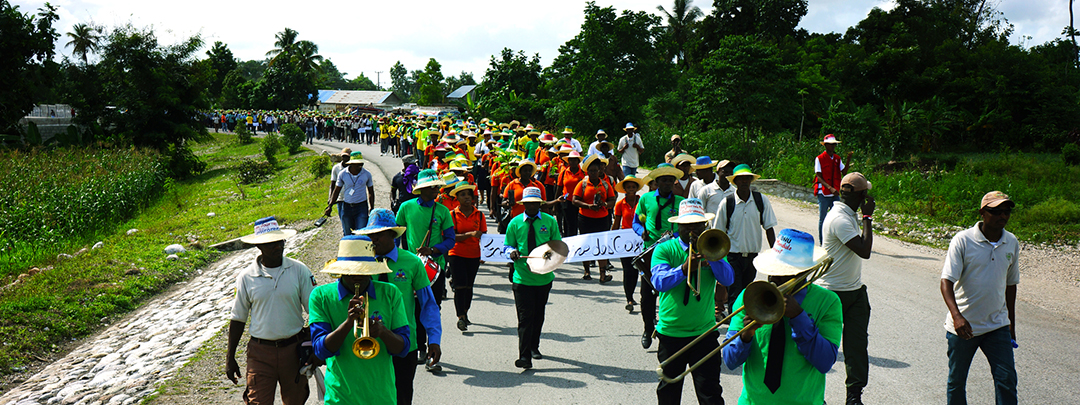Third International Conference on Environmental Peacebuilding
Jun 18, 2024
- Jun 21, 2024
|
Environmental Peacebuilding Association and the Grotius Center for International Legal Studies at Leiden University
The Hague, Netherlands and online
View Original
The Environmental Peacebuilding Association® (EnPAx®) and the Grotius Center for International Legal Studies at Leiden University are delighted to announce that the Third International Conference on Environmental Peacebuilding will be held on June 19-21, 2024. Tuesday, June 18 will feature training courses, business meetings, side events, and site visits. In addition, we are planning to have one virtual day of the conference to enable people who cannot travel to The Hague to participate; this virtual day is tentatively scheduled for Wednesday, June 12.
More information will be available here as it becomes available.
The Third Conference will feature 5 themes key to environmental peacebuilding as well as a 6th Open theme:
- Climate Change: Climate change is a potential threat multiplier and conflict accelerant; it also presents opportunities for cooperation. Abstracts on this theme may address, for example, analysis of climate-conflict linkages; climate-induced migration and displacement, including the criminalization of climate migrants; climate change financing for fragile and conflict-affected situations; promoting just energy transitions and sustainable development goals; critical minerals and the “green resource curse”; extractives and conflict; climate-security nexus, including decarbonization of defense; Indigenous responses to climate change; the impact of climate change on women’s responsibilities and opportunities; and climate change, conflict, and food security.
- Water: Water is a basic human need, and the provision of safe water is among the highest priorities during post-conflict recovery and peacebuilding. Notwithstanding predictions of “water wars,” shared waters have proved to be the natural resource with the greatest potential for interstate cooperation and local confidence building. This theme examines water challenges and opportunities at the center of the nexus of peace, development, and humanitarian aid. Abstracts for this theme may explore, for example, water cooperation and confidence building, including around water quality and pollution; water as a weapon of war; women in water diplomacy; Indigenous water rights and management approaches; water issues in arid and semi-arid geographies; peacebuilding approaches to watershed management; and water security.
- Peace, Justice, and Accountability: Peace, justice, and accountability are central to environmental peacebuilding. This theme focuses on the ways in which individuals, organizations, and states actors can be held accountable for environmental wartime harm; it also examines ways that marginalized populations have been disproportionately impacted by the environment-conflict nexus. Abstracts on this theme may, for example, examine the linkages of extractives, human rights, and conflict; accountability of non-state actors, such as armed groups and the private sector; legal protection of women’s rights to natural resources; Indigenous approaches to decision-making and accountability; critical analysis; the role of courts, tribunals and informal mechanisms, including transitional justice mechanisms, in promoting accountability; the role of fact-finding bodies in establishing evidence; and peaceful settlement of disputes over natural resources.
- Natural Resources and Conservation: Natural resources and conservation can be substantial drivers and accelerators of conflict; they also play a critical role in shaping environmental peacebuilding trajectories. Abstracts on this theme may, for example, address critical raw material partnerships; environmental and human rights defenders; park rangers; protected areas, including peace parks; Arctic resources as a new arena for resource extraction and trade; gendered roles in natural resource management and conflict resolution; critical analyses; the roles of Indigenous Peoples and practices; and “Harmony with Nature” approaches as tools for environmental peacebuilding.
- Data and Digital Technologies: Digital technologies—including big data—offer great potential for resilience planning, conflict and disaster early warning, conflict monitoring, negotiation and mediation, cooperative resource management, land use planning, and much more; at the same time, there are risks to privacy, accountability, accessibility, disinformation, data misuse, and other ethical dilemmas that must be managed. Under this theme, we encourage abstracts that explore issues and opportunities posed by big data and frontier technologies. These include, for example, accessibility of frontier technologies; community-based mapping; remote sensing; gendered participatory resource mapping; Indigenous Peoples and local spatial knowledge; water sensors; decision-making based on big data; and mapping of resources.
- Open: Abstracts on other topics at the intersection of environment, conflict, and peace are also encouraged. Abstracts on this theme may include, for example, topics related to poly-crises and cascading disasters; weapons (e.g., chemical weapons, land mines, etc.); youth; and conflict reduction and conflict prevention.
